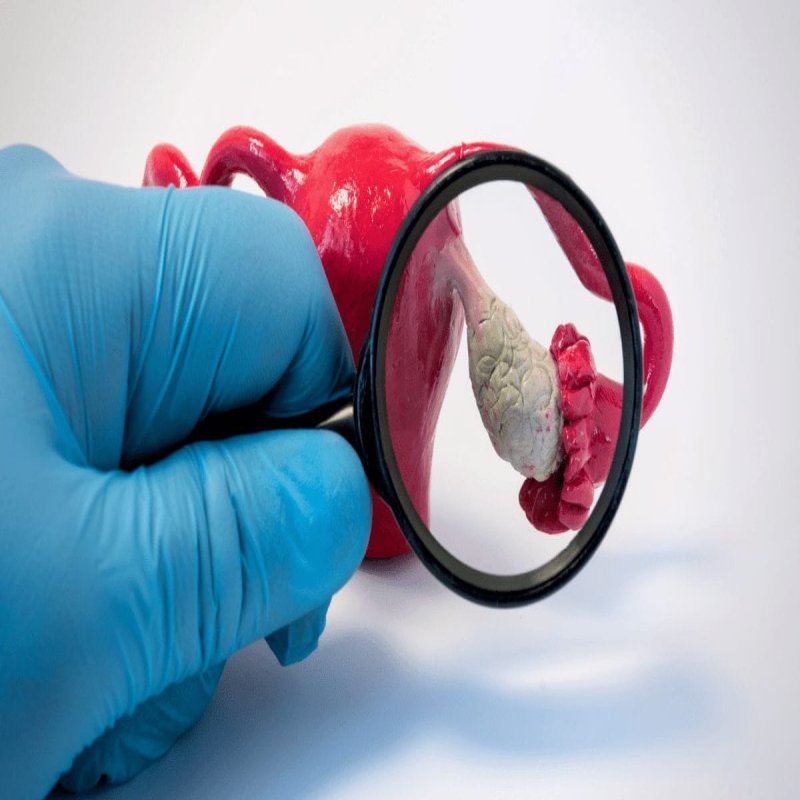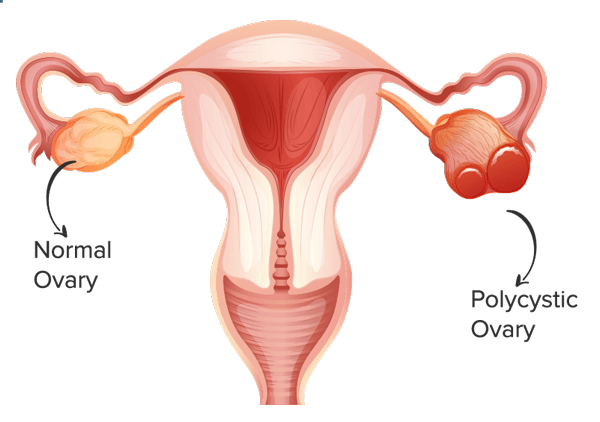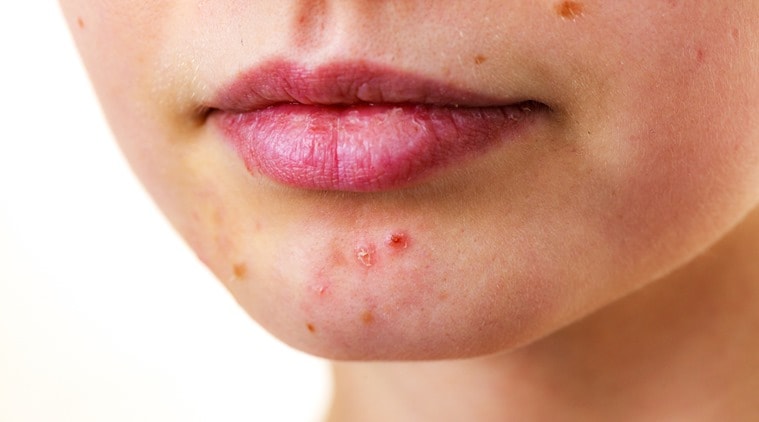
Polycystic ovary syndrome/disease (PCOS/PCOD) affects nearly 10 million females globally. It is becoming increasingly common among Indian women today, affecting nearly one in five women of childbearing age. However, the condition is thought to be highly underdiagnosed. This is largely due to a lack of awareness about polycystic ovary syndrome symptoms. Let’s check out in detail what PCOD symptoms women need to be aware of!
What is PCOD/ PCOS?
PCOD, or PCOS, is a disorder of the endocrine system in which excess amounts of androgens (a male hormone) are produced by the ovaries. It is a condition in which cysts are developed on the ovaries, preventing them from functioning normally. These cysts are basically follicles in which development gets arrested and the ovum does not mature. If the condition remains undiagnosed, in the long term it can lead to infertility and health issues like obesity, diabetes, heart disease, depression, etc. It is already a leading cause of infertility among women. So, it is important to identify the condition as soon as symptoms appear and take a corrective course of action.

When seen in isolation, Polycystic Ovary Syndrome symptoms appear minor and women often tend to ignore them. However, any combination of PCOD symptoms is a warning sign and you should visit your doctor at the earliest.
Here are the most common polycystic ovary syndrome symptoms that every woman should be aware of.
Ten Common PCOD Symptoms
Irregular Periods
As an endocrinal disorder that affects the hormonal balance, PCOD causes an increase in male hormone levels. As a result, the body does not produce enough progesterone, and irregularities develop in the menstrual cycle. Aside from irregular periods, PCOD can also cause missed or painful periods.

Weight Gain
PCOD is often the culprit when you experience an inexplicable or sudden weight gain. This means that any weight gain without a diet and lifestyle change may be an indication of PCOD. The likelihood of PCOD being the cause is even higher if you’re now having a hard time shedding those extra pounds.

Acne and Skin Problems
Although acne is common during adolescence, if it reappears years later, there is a good chance that PCOS is responsible. Teenage acne develops because of changes in hormonal levels—a problem that surfaces once more in PCOS. Hormonal imbalances and insulin resistance associated with PCOS can also cause darkened patches of skin to appear, especially on the back of the neck, thighs, underarms, or groin area.

Unwanted Hair
You don’t need to panic about the occasional appearance of chin hair, but a dramatic increase in hair growth should cause concern. One of the most common PCOD symptoms is unwanted hair growth. Described as hirsutism, unwanted male-pattern hair growth on a woman’s face, chest, and back is the result of an increase in male hormone levels.

Balding
It’s annoying and unfortunate, but while androgen (the male hormone) causes an increase in unwanted facial and body hair, it also causes hair loss from the scalp. This is why many women with PCOD also suffer from male-pattern balding or a receding hairline.

Sleep Impairment and Fatigue
PCOD symptoms also include impaired sleep, causing conditions like insomnia and sleep apnea. While insomnia involves difficulty falling asleep, sleep apnea is characterized by snoring and impaired breathing during sleep. Because of these symptoms, women with PCOD often wake up feeling fatigued, even after getting the required amount of sleep.

Click here to learn why good sleep is important for well-being!
Food Cravings
Food cravings may be most associated with pregnancy, but at other times the type of craving you have can give insight into your health. If you’re experiencing stronger cravings for carbs and sugary foods, PCOD may be the cause. PCOD affects your insulin levels, which forces your cells to rely on glucose for fuel.

Trouble Conceiving
Conception doesn’t occur on the first try, but if you’ve been struggling to get pregnant for years, PCOD could be the cause of reduced fertility levels. Fertility issues associated with PCOD may be related to elevated hormone, insulin, or glucose levels. All of these can interfere with embryo implantation as well as development. A higher luteinizing hormone (LH) level reduces the chance of conception and increases the chance of miscarriage. Higher insulin levels may also contribute to the poor quality of the egg, thus making conception more difficult. Moreover, a decrease in progesterone impairs egg development and lowers the chances of conception. As a matter of fact, PCOD is the most common cause of infertility worldwide.

Prediabetes or Diabetes
The causes of insulin resistance in PCOS are not clearly understood, but the connection is clear. PCOD symptoms involve raising your blood sugar levels, resulting in prediabetes which is reversible. If not managed swiftly, however, it can lead to the onset of type-2 diabetes.

Anxiety and Depression
Studies show a much higher incidence of anxiety and depressive disorders in women with PCOS, but the causes aren’t always easy to establish. While hormonal imbalances in PCOD can play a role, the stress of having to deal with weight gain, acne, infertility, and other symptoms is also a contributing factor.

Some Common Experiences of PCOS Sufferers
If you are suffering from Polycystic Ovary Syndrome (PCOS), one of the most common statements you might hear from your doctor is that PCOS cannot be cured, so you must try and manage the symptoms.
PCOS is a complicated lifestyle disorder that modern science has not yet fully decoded. To add to its complexity, it does not affect everyone similarly. Some of the symptoms could be exaggerated for a few, while others could be totally absent. However, two key factors remain common: insulin resistance and hormone irregularities.
Thus, the approach your physician may take could be goal-oriented. What is it that you are looking to do?
- Contain long-term health risks such as diabetes in check
- Increase ovulation to improve your fertility
- Manage body weight, and so on
Consequently, the treatment options could vary, depending on the health or life goals you have.

Click here to know more about the link between diabetes and obesity!
So, What should One Do?
Many of the PCOS sufferers are overweight or obese. Losing just 5% to 10% of body weight could ease some symptoms and may even help the patient’s periods become more regular. It may also help in the management of blood sugar levels and ovulation. Another way to manage these factors and ease the symptoms is through lifestyle changes and dietary supplements, but there’s no one-size-fits-all approach to PCOS.
Learn more about the Glycemic Index, the first step towards understanding and managing blood sugar.
However, one of the best ways to deal with PCOS is to eat well and exercise regularly. This does not only improve your quality of life and overall health but will also aid in weight management.
However, Ayurveda can be a far more Effective tool!
As per Ayurveda, the pathology for polycystic ovarian syndrome is an obstruction in the pelvic cavity, leading to disorders in the flow of Vata. Which in turn leads to the accumulation of Kapha and Pitta in the body. The treatment modality is based on clearing this pelvic obstruction, normalizing metabolism, and regulating the reproductive system. Kapha-reducing, insulin-enhancing, and hormone-rebalancing Ayurvedic herbs help in relieving the symptoms of PCOS. A study conducted in Sri Lanka in 2010 found that subfertility due to PCOS can be successfully cured by following an Ayurvedic treatment regimen.
Although PCOD is a complex metabolic and endocrine disorder, most of the symptoms can be reversed and managed effectively using a multi-pronged approach. It can be easily dealt with in a timely manner using natural methods like Ayurvedic herbs, panchakarma, diet (as per the body constitution), yoga, and exercise. Ayurvedic treatment not only helps in controlling PCOS; it also helps in restoring general health and well-being. Seek help as soon as you notice any of these PCOD symptoms, and begin treatment immediately if you receive a diagnosis of PCOD.


.png)


